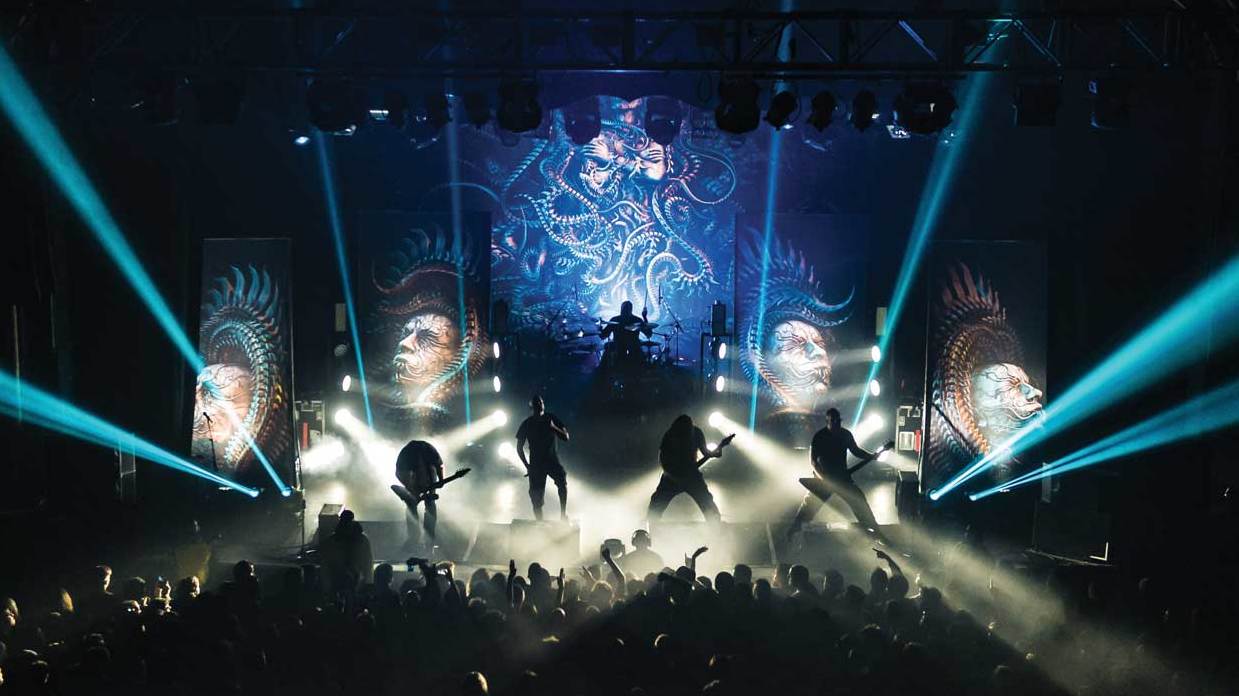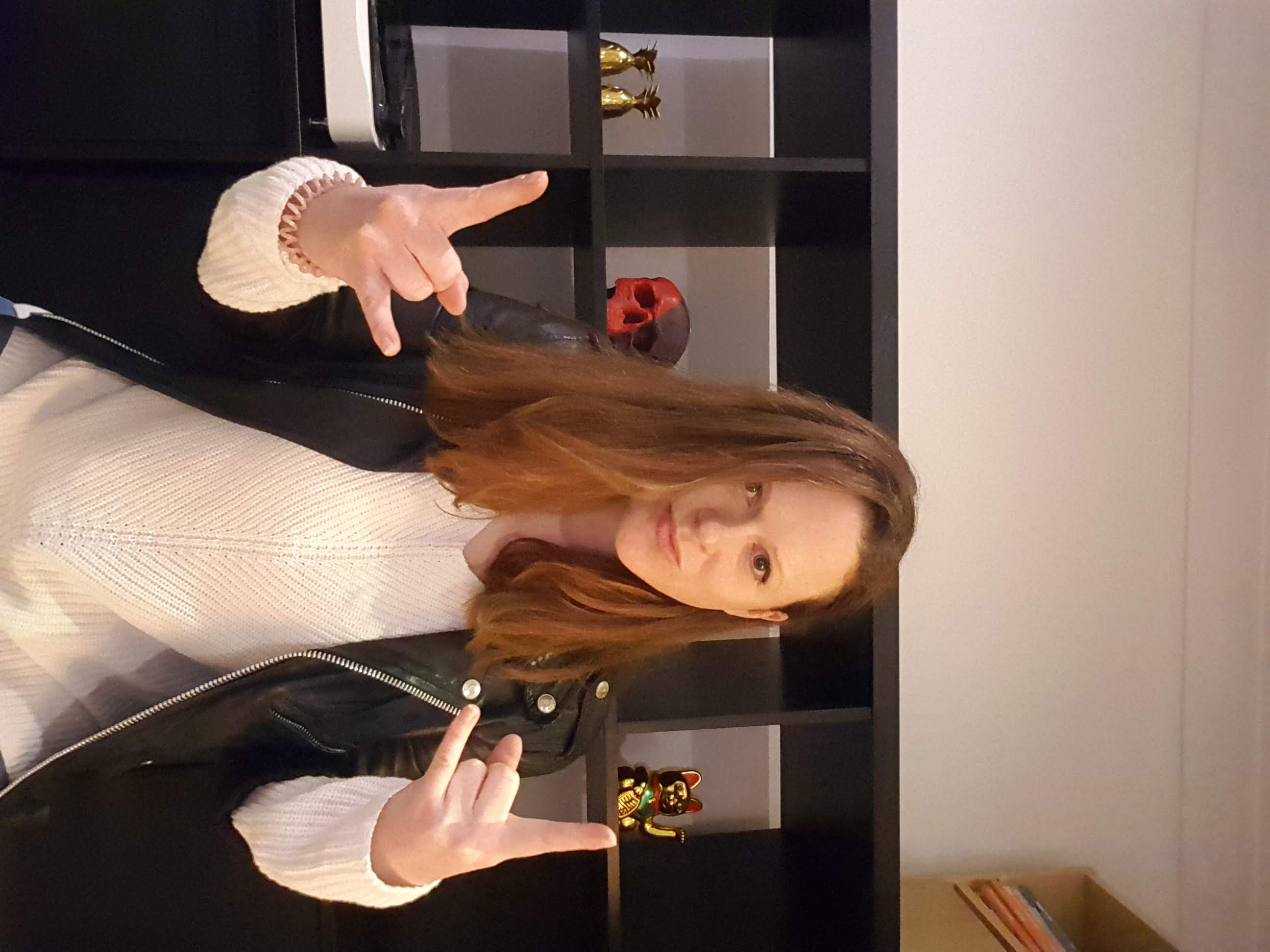Halfway through Meshuggah’s set, a fan seated in the balcony leaps from his chair and thrusts his arms into the air with a triumphant roar. On one of his arms dangles a now-redundant NHS sling. Around him, people barely move, either because they’re awestruck, or because headbanging in time to the music is an impossible task. Thirsty liggers sprint to the bar for a top-up, not daring to miss a second of the show, while others grapple for their camera phones and snap away at the laser-lit darkness.
Why? Because a Meshuggah gig is far greater than the sum of its parts. Tonight, London has witnessed one of the heaviest bands in existence, but also one of the most dextrous, steadfast and, vitally, most influential heavy bands of the last 20 years.
Their most recent album, The Violent Sleep Of Reason, is a biomechanical masterpiece, breathing new life into their until-now clinical perfectionism. The incremental changes they’ve made to their polymetered output over the years sound fresher than ever while retaining that jaw-dropping turbine motion, and it all springs to life during their entrance, on the volcanic eruption of Clockworks. It’s forged together with an absurdly complicated concoction of polyrhythms and ZX Spectrum-esque squealing guitars. Tonight they keep it simple, thundering through their biggest anthems (although omitting fan favourite Combustion) and featuring four songs off the new album.
Chants of “Me-shugg-ah!” lead them into a thrashy rendition of Sane, before Perpetual Black Second, which is every geek’s dream, overlaps engine-revving grooves with coded single-note riffing of mind-bending complexity.
The light show is superb. Sharp geometric red and green lasers cascade across the darkness of the venue in front of five silhouettes lurking in the dark hell of the stage. They really come alive on The Hurt That Finds You First, as the band slow down to half speed, stirring up a syncopated dirge. It slides into Fredrik Thordendal’s spine-tingling, pin-drop guitar solo, giving both band and audience a well-earned breather.
“This one’s called Bleed,” says frontman Jens Kidman, slamming into Meshuggah’s best-known song, and it couldn’t sound an ounce better: the powerhouse combo of long-standing personnel Thordendal and drummer Tomas Haake take it to a whole new level.
They return for an encore, waltzing through the torture-room onslaught of Demiurge, and leaving us with one last thwack of Future Breed Machine, which even now embodies a level of ingenuity that defies expectation.
Like a dark and twisted episode of Black Mirror, Charlie Brooker’s television series that examines a dystopian vision of the future, Meshuggah make ridiculously clever yet deeply unnerving music that’s better perceived as an experience than a gig.

